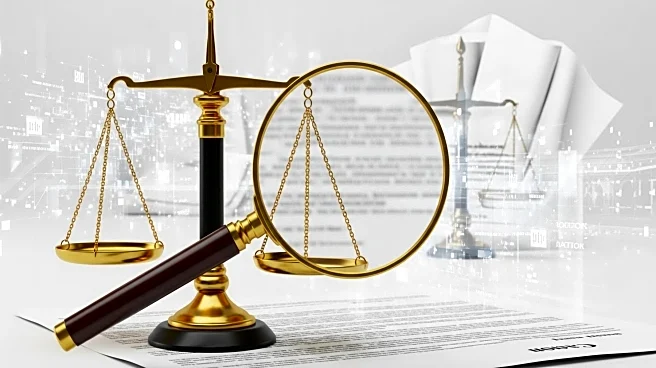What's Happening?
Warner Bros. Discovery has joined a legal battle against Midjourney, an AI company accused of copyright infringement. The lawsuit, initially filed by Disney and Universal Pictures, claims that Midjourney has been using copyrighted characters to generate images and videos without authorization. Warner Bros. Discovery alleges that Midjourney has allowed users to create replicas of characters such as Superman, Wonder Woman, and Scooby-Doo, which the studio holds rights to. The complaint highlights Midjourney's decision not to prevent such activities as a profit-driven move, despite being aware of the scale of piracy involved. Midjourney, in its defense, argues that using copyrighted content to train AI falls under 'fair use' and criticizes Disney for using AI while simultaneously suing AI companies.
Why It's Important?
This lawsuit underscores the growing tension between traditional media companies and AI firms over intellectual property rights. As AI technology advances, the ability to replicate copyrighted material poses significant challenges to content creators and rights holders. The outcome of this case could set a precedent for how copyright laws are applied to AI-generated content, impacting the film industry and other sectors reliant on intellectual property. Companies like Warner Bros. Discovery and Disney stand to protect their assets, while AI firms may face stricter regulations, potentially affecting innovation and business models within the AI sector.
What's Next?
The legal proceedings will likely involve detailed examinations of copyright laws and their applicability to AI technologies. Major stakeholders, including other media companies and AI firms, will be closely monitoring the case for its implications on future business practices. If the court rules against Midjourney, it could lead to increased scrutiny and regulation of AI-generated content, prompting companies to reassess their use of AI in creative processes. Conversely, a ruling in favor of Midjourney might encourage broader use of AI in content creation, albeit with potential backlash from rights holders.
Beyond the Headlines
The case raises ethical questions about the balance between technological innovation and the protection of intellectual property. It challenges the notion of 'fair use' in the digital age, where AI can mimic creative works with high fidelity. The lawsuit also highlights the cultural impact of AI on traditional media, as it blurs the lines between original and replicated content, potentially altering consumer perceptions and industry standards.










